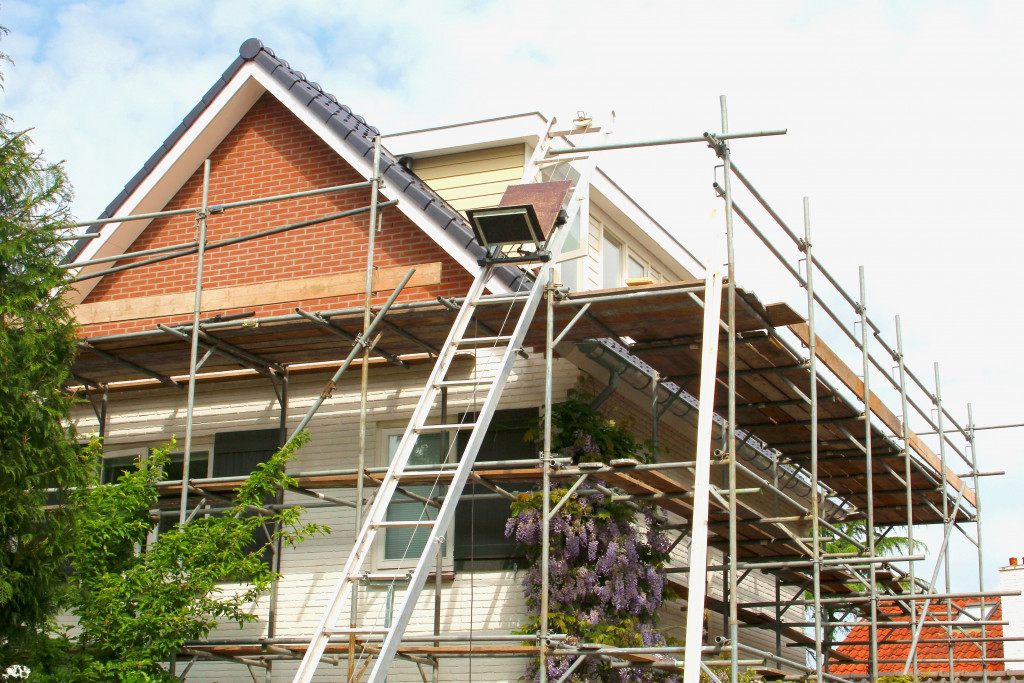There was a time when most people avoided fixer-uppers at all costs. But in today’s market, more and more people are considering them as a way to get into the housing market. And while there are certainly some challenges that come with living in a fixer-upper, there are also some big potential rewards.
Of course, you should consider the state of the house and gauge whether what you’ll be paying for it will be worth the trouble. But assuming you’re set on buying a fixer-upper, there are five key areas you’ll want to focus on before making the move.
1. The structural integrity of the house
The last thing you want is to move into a fixer-upper and then discover that there are serious structural issues that need to be addressed. Before you buy, ensure a thorough inspection to know exactly what you’re dealing with. And be on the lookout for any obvious signs of trouble, like cracks in the foundation or water damage in the basement.
You should also be aware that some structural problems can be hidden, so even if the house looks okay at first glance, it’s still essential to get a professional opinion. If you see one too many red flags, it’s probably best to move on to another property because structural problems can be costly to fix.
2. The state of the plumbing
Plumbing issues can be a significant headache, and they can also be costly to repair. So before you buy a fixer-upper, it’s vital to ensure that the plumbing is in good shape. This means checking for leaks, clogs, and any other potential problems. If you’re not an experienced plumber yourself, it’s probably a good idea to hire a professional to take a look before you make an offer on the house.
By inspecting the plumbing system, you can avoid any nasty surprises down the road and be confident that you’re not inheriting someone else’s problems. Of course, even if the plumbing is in good shape, there’s always the potential for future issues. But it’s better to know what you’re dealing with from the start.
3. The condition of the electrical system
Another area you’ll want to focus on is the electrical system because, like plumbing, electrical problems can be frustrating and expensive. Before you buy a fixer-upper, have the electrical system inspected by a professional since they’ll be able to spot any potential problems.
If you find any problems, you can either negotiate a better price for it or be prepared for the repairs needed. Some examples of electrical problems you might encounter include outdated wiring, faulty outlets, and circuit breaker issues. As with plumbing, it’s always better to be safe than sorry when it comes to the electrical system.
With a professional electrician by your side, you can also get a better idea of how much it would cost to upgrade the electrical system if needed. This is vital information because upgrading the electrical system can be a significant project depending on the scope of the work.
4. The condition of the walls and ceilings
Walls and ceilings can often be neglected in fixer-uppers, so it’s essential to look closely at them before you buy. Look for cracks, holes, or other damage that will need to be repaired since these can be expensive fixes. You should also check for water damage, which can signify more significant problems like leaks in the roof or plumbing issues.
In some cases, you might be able to repair the damage with a few simple tools and some elbow grease. But in other cases, you might need to hire a professional. Either way, it’s essential to be aware of the necessary work to adjust your budget accordingly.
5. The condition of the floors
The condition of the floors is another crucial factor to consider. Once again, you’ll want to look for any damage that will need to be repaired. For instance, if you only need a tile repair or re-grouting, that’s not a significant issue. But if you’re dealing with bigger problems like water damage or rot, you’ll need to factor in the cost of repairs.
If you’re not sure about the condition of the floors, it’s always a good idea to hire a professional to take a look. They’ll be able to tell you if the floors can be repaired or if they need to be replaced. Either way, it’s crucial to clearly understand what you’re dealing with to make the best decision for your situation.
These are just a few things you’ll want to focus on before moving into a fixer-upper house. By focusing on these critical areas, you can avoid some of the most common problems that come with living in a fixer-upper and enjoy your new home for years to come!


